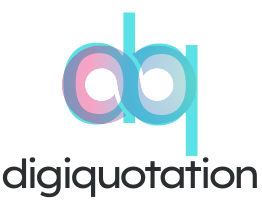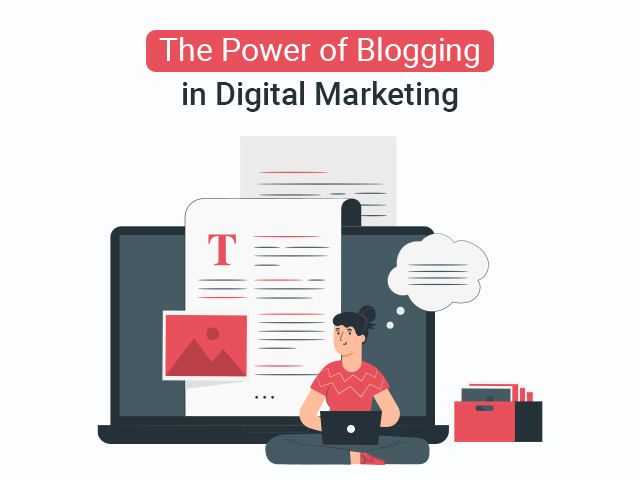How Blogging Bolsters Digital Marketing Efforts
Blogging is a effective device that can substantially beautify digital advertising efforts in quite a few ways. One of the most large advantages of running a blog is that it will increase internet site traffic. By generally publishing clean and applicable content material on your website, you can entice site visitors and expand your website’s traffic. Additionally, optimizing weblog posts for search engines can assist you entice greater natural site visitors to your site, main to greater leads and sales.
SEO and Traffic
website positioning (Search Engine Optimization) and site visitors are carefully associated as search engine optimisation is a method to enlarge the visitors of a internet site via optimizing its content material to rank greater in search engine consequences pages (SERPs).
SEO includes a number strategies and practices to enhance a website’s visibility and rating in search engine results. Some of the key components of search engine optimization encompass key-word research, on-page optimization, off-page optimization, technical optimization, and content material creation.
When a internet site ranks greater in SERPs for applicable search queries, it is extra possibly to entice natural traffic. Organic site visitors refers to traffic who discover a internet site thru a search engine, as an alternative than via paid marketing or different means.
Lead Generation, Nurturing, and Conversion:

Lead generation, nurturing, and conversion are necessary factors of the income process. These levels assist organizations entice possible customers, construct relationships with them, and convert them into paying customers.
Lead era entails figuring out and attracting achievable clients who are fascinated in a business’s merchandise or services. Some frequent lead era techniques consist of search engine optimization, social media marketing, content material marketing, and e-mail marketing. The aim of lead technology is to seize the contact facts of doable customers, such as their e-mail address, cellphone number, or social media profile.
Once a lead has been generated, the subsequent stage is lead nurturing. This entails constructing a relationship with the lead via supplying them with treasured information, enticing with them on social media, and presenting personalised content. The aim of lead nurturing is to construct have confidence with the lead, set up the commercial enterprise as an authority in their industry, and pass the lead nearer to making a purchase.
Finally, the closing stage is conversion. This entails persuading the lead to take motion and turn out to be a paying customer. Conversion can manifest in a range of ways, such as making a purchase, signing up for a free trial, or inquiring for a consultation. The key to profitable conversion is to furnish the lead with a compelling cause to take action, such as a discount, a limited-time offer, or a customized recommendation.
Insight into Your Audience:

- Conduct market research: Conducting market lookup is a systematic technique of gathering and examining facts about your goal audience, along with their demographics, behavior, preferences, and ache points. This can be achieved via surveys, interviews, center of attention groups, and different lookup methods.
- Analyze website analytics: Analyzing internet site analytics, such as Google Analytics, can grant treasured facts about your audience, together with their geographic location, age, gender, and interests. This facts can assist you create centered advertising and marketing campaigns and content material that resonate with your audience.
- Use social media analytics: Social media analytics can assist companies obtain perception into their audience’s behavior, preferences, and interests. By examining metrics such as engagement rates, follower growth, and demographics, companies can create social media content material that resonates with their audience.
- Monitor customer feedback: Monitoring consumer feedback, such as product reviews, purchaser assist interactions, and social media comments, can supply treasured perception into your audience’s ache points, preferences, and delight levels. This remarks can assist you enhance your merchandise and offerings and create higher client experiences.
Purpose Of Blogging

In summary, the purpose of blogging is to achieve the following goals:
- Building an Online Presence: Blogging can help individuals and organizations establish a strong online presence and increase their visibility.
- Providing Information: Blogs can be used to provide valuable information and insights on a variety of topics, such as news, trends, tips, and advice.
- Building a Community: Blogs can be a platform to engage with readers and build a community around shared interests and ideas.
- Establishing Authority: By consistently providing quality content and insights on a particular topic, bloggers can establish themselves as experts or thought leaders in their field.
- Marketing and Promotion: Blogs can be used as a marketing and promotional tool to promote products, services, and events.
- Generating Revenue: Blogs can also be monetized through advertising, affiliate marketing, or sponsored content.
The Bottom Line
In blogging, the “bottom line” refers to the ultimate goal or purpose of the blog. While this can vary depending on the specific goals of the blogger or business, the bottom line typically includes the following:
- Engagement: Bloggers aim to engage with their audience by creating valuable and interesting content that resonates with their readers.
- Traffic: Bloggers want to drive traffic to their website by optimizing their content for search engines, using social media, and other marketing strategies.
- Conversion: Bloggers may want to convert readers into customers, subscribers, or followers by promoting products, services, or memberships.
- Branding: Bloggers want to build a strong brand identity by creating consistent and recognizable content that reflects their values, style, and personality.
- Reputation: Bloggers aim to establish a positive reputation by providing accurate and trustworthy information, responding to comments and feedback, and building relationships with their audience.

